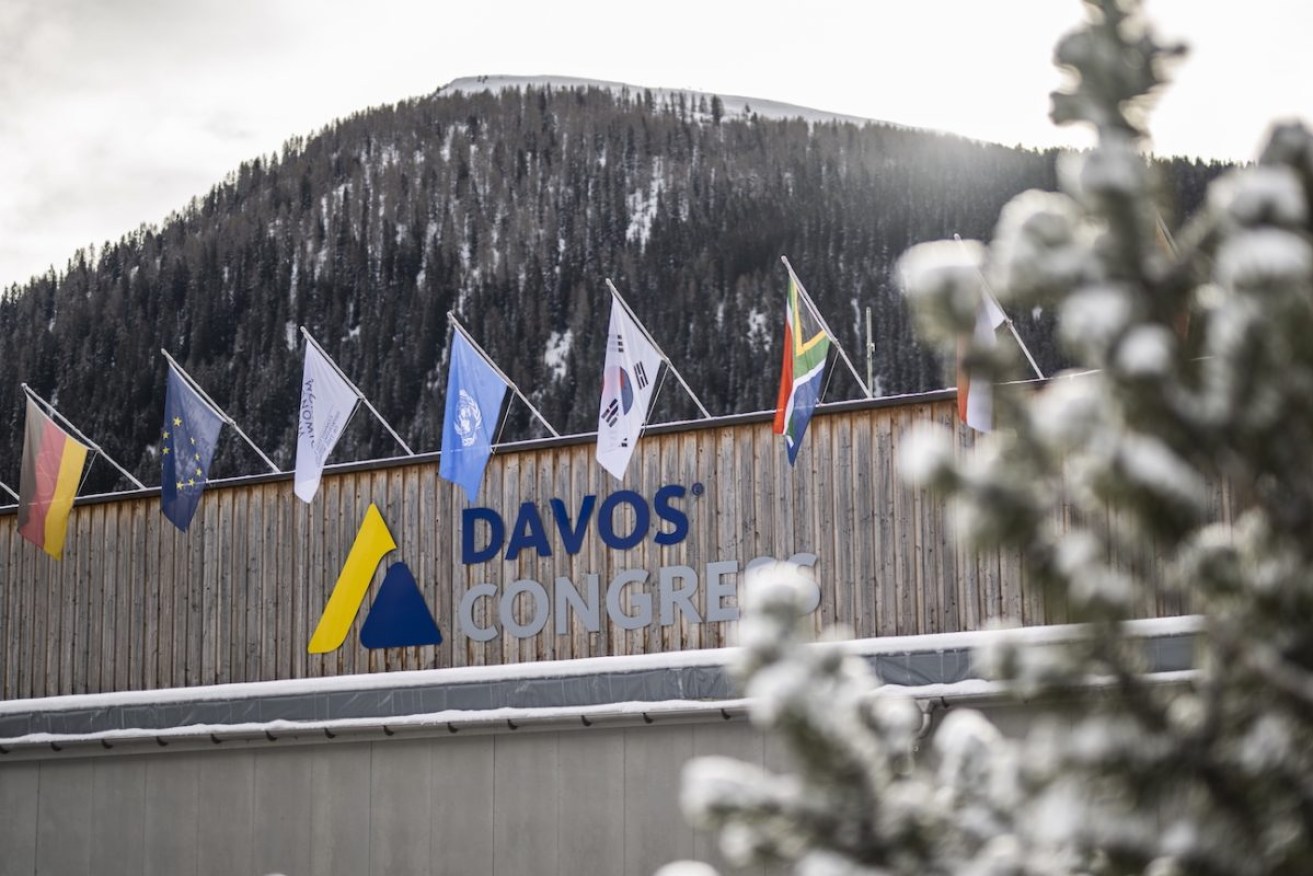World economists predicting global recession in 2023
Two-thirds of private and public sector chief economists surveyed by the World Economic Forum expect a global recession in 2023.

The World Economic Forum meeting in Davos, Switzerland. Photo: EPA/Gian Ehrenzeller
Business and government leaders have gathered in Davos, Switzerland, for the WEF’s annual meeting.
Some 18 per cent of those surveyed considered a world recession “extremely likely” – more than twice as many as in the previous survey conducted in September 2022. Only one-third of respondents to the survey viewed it as unlikely this year.
“The current high inflation, low growth, high debt and high fragmentation environment reduces incentives for the investments needed to get back to growth and raise living standards for the world’s most vulnerable,” WEF managing director Saadia Zahidi said in a statement accompanying the survey results on Monday.
The organisation’s survey was based on 22 responses from a group of senior economists drawn from international agencies including the International Monetary Fund, investment banks, multinationals and reinsurance groups.
The survey comes after the World Bank last week slashed its 2023 growth forecasts to levels close to recession for many countries as the impact of central bank rate hikes intensifies, Russia’s war in Ukraine continues, and the world’s major economic engines sputter.
Definitions of what constitutes recession differ around the world but generally include the prospect of shrinking economies, possibly with high inflation in a “stagflation” scenario.
On inflation, the WEF survey saw large regional variations: the proportion expecting high inflation in 2023 ranged from just five per cent for China to 57 per cent for Europe, where the impact of last year’s rise in energy prices has spread to the wider economy.
A majority of the economists see further monetary policy tightening in Europe and the United States (59 per cent and 55 per cent, respectively), with policy-makers caught between the risks of tightening too much or too little.
Other main findings of the survey included:
– Nine out of 10 respondents expect both weak demand and high borrowing costs to weigh on firms, with more than 60 per cent also pointing to higher input costs.
– these challenges are expected to lead multinational businesses to cut costs, from reducing operational expenses to laying off workers
– however, supply chain disruptions are not expected to cause a significant drag on business activity in 2023
– the cost-of-living crisis may also be nearing its peak, with a majority (68 per cent) expecting it to have become less severe by the end of 2023.
Former foreign minister Julie Bishop is attending the forum, heading up an Australian National University contingent as chancellor, alongside Nobel Prize winner Professor Brian Schmidt and technology anthropologist Professor Genevieve Bell.
Bishop will speak at a number of Davos events, including on a panel about Japan.
A record 2700 delegates will confront issues that reach across borders and require the movement of people, goods and data – and a fairer distribution of wealth.
The Australian government will be represented at the forum by Assistant Minister for Trade Tim Ayres.
Australian firms are positioning to take advantage of demand for critical minerals to power industrial change, and jostling for a place in the future financial system of green finance and carbon accounting.
More than 50 years after the forum’s first annual meeting, some believe this year’s talks could be pivotal as the world faces a possible recession, ongoing war in Ukraine and a climate crisis.
Forum founder Klaus Schwab said the metaverse will influence the way people, governments, companies and society at large think, work, interact and communicate about world issues.
The energy shock, global inflation and shaky geopolitics are on the forum agenda, along with workforce inclusion, sustainability and preventing the next pandemic.
A “living wage”, which covers basic needs and allows some extra to be put aside for big purchases or emergencies, is also up for discussion.
Inclusion for workers with disability and from diverse cultural backgrounds is also an important goal with companies already competing for scarce talent.
But ex-Liberal senator Cory Bernardi doubts the integrity of the Davos organisers and said they “want to add more crony to capitalism while allowing you to eat bugs and own nothing”.
-AAP




